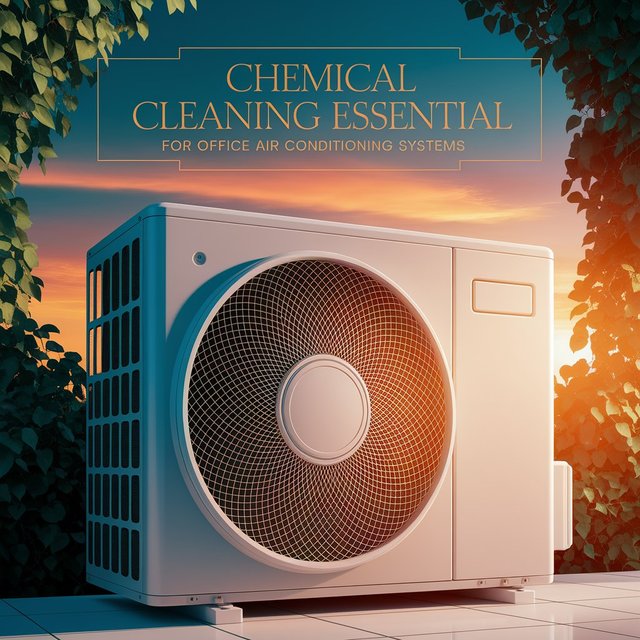Could Low Refrigerant Be Behind Your AC’s Poor Cooling Performance?

Air conditioning systems are essential for maintaining comfort in homes and workplaces, especially during hot seasons. However, when your AC isn’t cooling as effectively as it should, the discomfort can be frustrating. One common culprit behind poor cooling performance is low refrigerant levels. In this comprehensive guide, we’ll explore how low refrigerant affects your AC, the signs to look for, causes, and solutions, plus expert advice to help you restore your AC’s efficiency.
Understanding Refrigerant and Its Role in Your AC System
Refrigerant is the lifeblood of any air conditioning system. It is a special fluid that absorbs heat from your indoor air and releases it outside, cooling your home. Refrigerants undergo phase changes—from liquid to gas and back—inside the system, enabling the transfer of heat.
Without the correct amount of refrigerant, your air conditioner cannot effectively remove heat from the indoor air, resulting in diminished cooling performance.
How Low Refrigerant Affects Your AC’s Cooling Performance
When the refrigerant level drops below the optimal range, the AC’s cooling efficiency deteriorates. Here’s why:
Reduced Heat Absorption: With insufficient refrigerant, less heat is absorbed from the indoor air, making the air feel warmer.
Longer Cooling Cycles: The system struggles to reach the set temperature, running longer and increasing wear.
Increased Energy Consumption: A struggling AC consumes more electricity to try to maintain comfort, leading to higher energy bills.
Potential Component Damage: Low refrigerant can cause the compressor to overheat or fail prematurely.
Common Causes of Low Refrigerant in Air Conditioners
Refrigerant does not naturally get “used up” in an AC system. It circulates in a closed loop. Therefore, low refrigerant usually indicates a leak. Common causes include:
Leaks in the Refrigerant Lines: Corrosion, physical damage, or wear can cause tiny holes or cracks.
Faulty Installation or Repair Work: Improper sealing or connections can lead to leaks.
Wear and Tear of Components: Over time, gaskets, seals, and valves may degrade.
Vibrations and External Damage: External impact or vibrations can loosen fittings or damage lines.
Detecting and repairing leaks quickly is essential to prevent further damage and inefficiency.
Signs Your AC May Have Low Refrigerant
Recognizing low refrigerant early can save you money and discomfort. Watch for these symptoms:
Poor Cooling or Warm Air
If your AC blows air that is not as cold as before or just slightly cooler than room temperature, low refrigerant may be the reason.Longer Cooling Cycles
Your system runs longer than usual, but the indoor temperature doesn’t reach the desired setpoint.Ice Formation on the Evaporator Coil or Refrigerant Lines
Low refrigerant causes the evaporator coil to become too cold, leading to frost or ice buildup.Hissing or Bubbling Sounds
Leaks can produce hissing noises or the sound of bubbling refrigerant escaping.Higher Energy Bills
Because the system runs inefficiently, expect to see increased electricity consumption.
How to Diagnose Low Refrigerant
Diagnosing refrigerant levels requires technical expertise and special equipment:
Pressure Gauges: Technicians attach gauges to measure refrigerant pressure.
Leak Detection Tools: Ultraviolet dye, electronic leak detectors, or soap bubble tests find leaks.
Performance Evaluation: Temperature drop across evaporator coils is analyzed.
Attempting to check or refill refrigerant yourself can be dangerous and illegal due to environmental regulations.
Why You Should Leave Refrigerant Handling to Professionals
Handling refrigerants involves risks and legal constraints:
Refrigerants can be hazardous to health if inhaled.
They are potent greenhouse gases; improper handling harms the environment.
Only licensed technicians can legally purchase and handle refrigerants.
Hiring a certified HVAC professional ensures safety, compliance, and optimal system performance.
Steps to Take If You Suspect Low Refrigerant
If you notice signs of low refrigerant:
Turn Off the AC: Prevent further damage by stopping the system.
Schedule Professional Inspection: A technician will identify leaks and assess refrigerant levels.
Repair Leaks: Before refilling refrigerant, leaks must be fixed.
Recharge Refrigerant: Professionals refill the system to manufacturer specifications.
Test and Monitor: Confirm the system operates efficiently post-service.
The Impact of Low Refrigerant Beyond Cooling
Low refrigerant not only reduces cooling capacity but also leads to:
Compressor Damage: Running without enough refrigerant causes overheating.
Increased Repair Costs: Neglecting the problem worsens it.
Shortened AC Lifespan: Components wear out faster.
Addressing low refrigerant promptly can save you from expensive repairs and replacement.
Preventative Measures to Avoid Low Refrigerant Issues
Preventive care helps maintain refrigerant levels and overall AC health:
Regular Maintenance: Schedule routine inspections and servicing.
Monitor Performance: Stay alert to any changes in cooling efficiency.
Protect Refrigerant Lines: Shield from physical damage and corrosion.
Prompt Repairs: Address minor issues quickly before they escalate.
More Information on Identifying Aircon Compressor Issues
Low refrigerant often stresses your AC compressor, leading to additional problems like overheating, strange noises, or failure. For more information on how to recognize compressor issues and other related AC problems that may be connected to refrigerant levels, you can visit SoCool’s detailed guide here. This resource provides in-depth insights and professional advice, helping you better understand the underlying causes of poor cooling performance and what steps to take next.
Related Keywords to Understand
Refrigerant leak detection
AC refrigerant recharge
Signs of low refrigerant in air conditioner
Air conditioner cooling problems
HVAC refrigerant handling
Aircon compressor failure
Refrigerant leak repair cost
Conclusion: Don’t Ignore Low Refrigerant Problems
If your AC is struggling to keep your space cool, low refrigerant should be one of the first issues to investigate. Understanding the role of refrigerant and acting quickly to repair leaks and recharge your system is essential to maintaining comfort, saving energy, and protecting your investment. Always consult qualified professionals for diagnosis and repair to ensure safety and compliance with regulations.
By paying close attention to the signs and scheduling regular maintenance, you can prevent low refrigerant problems and keep your air conditioning system running efficiently for years.
Grab some shit food in the meantime, ass talking crazy ..